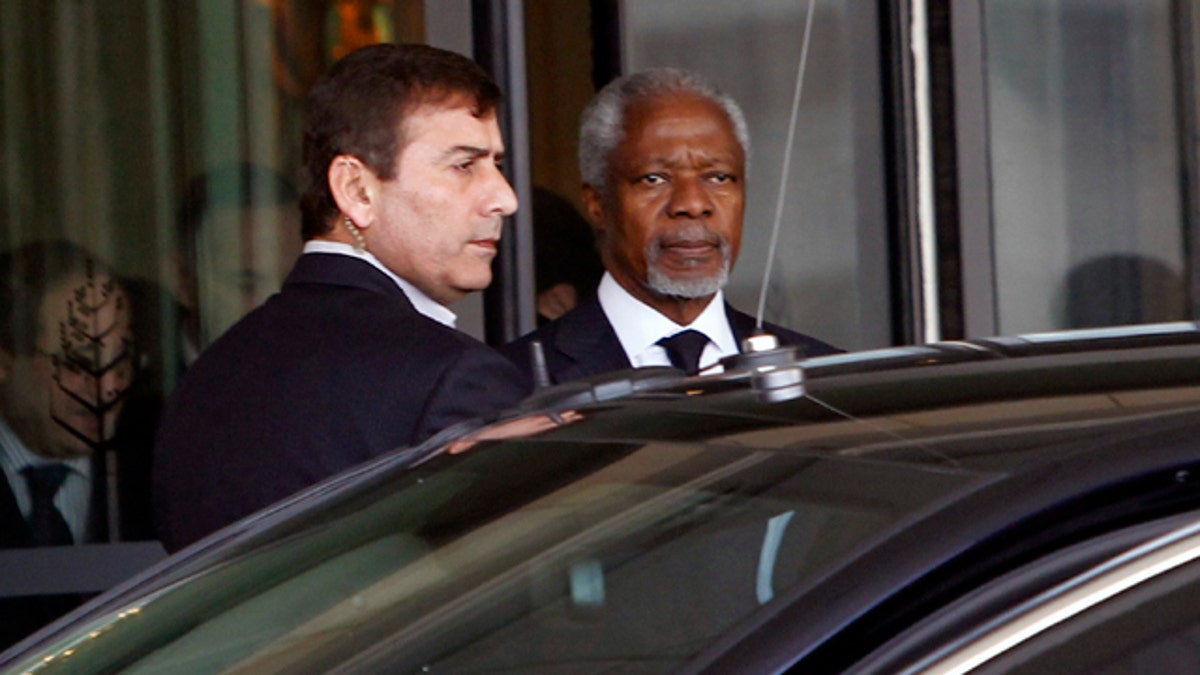
March 10, 2012: Kofi Annan, the United Nations special envoy to Syria, center, leaves the Four Seasons Hotel in Damascus, Syria on his way to the presidential palace for a meeting with Syrian President Bashar Assad. (AP)
MOSCOW – Kofi Annan, the United Nations and Arab League envoy to Syria, said Monday that there can be no deadline for ending the Syrian crisis, but it can't be allowed to drag on indefinitely.
Annan told reporters before leaving Moscow for Beijing that the main issue now is to start a dialogue, adding that it would be up to the Syrians themselves to decide if President Bashar Assad should step down.
Annan has been in Moscow for talks with Russian President Dmitry Medvedev.
"It may in the end come to that, but it's not up to me, it's up to the Syrians," said Annan, a former U.N. secretary-general. "Our effort is to help the Syrians come to the table and find the way out of all of this."
Annan added that he had discussed a possible U.N. observer mission in Syria with Damascus.
"As part of the discussions we are having with the Syrian authorities, it's not excluded that a U.N. observer force may go in to ensure that the parties honor and respect the commitments that they are going to make," Annan said.
"We hope that they would agree to cessation of hostilities very shortly, and if that happens we will have to be on the ground to monitor and ensure that all sides are respecting the agreement."
Annan spoke after talks with Medvedev, who promised Moscow's full support for his mission. Medvedev said the mission "may be the last chance for Syria to avoid a protracted bloody civil war."
Russia -- along with China -- has twice shielded Assad from U.N. sanctions over his crackdown on a yearlong uprising, in which more than 8,000 people have been killed.
But Moscow has strongly backed Annan's mission and has grown increasingly impatient with the Syrian ruler, with the Russian foreign minister pointedly criticizing Assad for being too slow with reforms.
Annan said Monday that his message to the Syrian government was that they can't resist changes and that the bloodshed "can't be allowed to drag on idefinitely."
"I told the parties on the ground: they can't resist the transformational winds that are blowing," he said. "They have to accept that reforms have to come, change has to come, and that is the only way to deal with the situation."
He added that it would be unrealistic to set any deadlines.
"It's not practical to put out timetables and timelines when you haven't got an agreement from the parties, and this is what we are working on as speedily as we can," he said.
